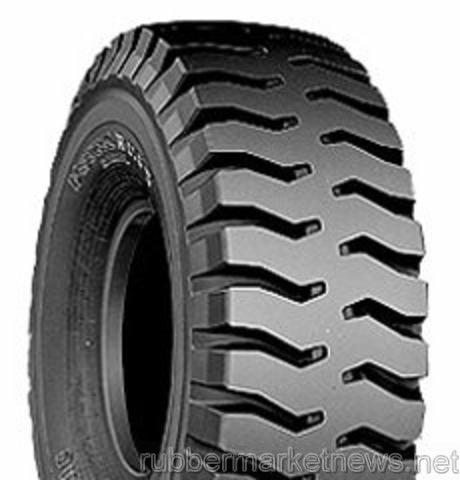 Honda Motor and Hyundai Motor will paint vastly different pictures for the year ahead when they report earnings on Thursday (Apr 28) after the March 11 earthquake hammered car production in Japan and helped overseas rivals in the process.
Honda Motor and Hyundai Motor will paint vastly different pictures for the year ahead when they report earnings on Thursday (Apr 28) after the March 11 earthquake hammered car production in Japan and helped overseas rivals in the process.
The magnitude-9.0 earthquake and the tsunami it triggered have disrupted the supply of hundreds of components from Japan's northeast region, paralysing car production and reversing what had been shaping up to be a firm recovery from the financial crisis for Japanese automakers.
While the supply bottleneck of certain specialty parts such as microcontroller units made by Renesas Electronics Corp has also hit some automakers outside Japan, most of the pain is being inflicted on domestic brands such as Honda, where output remains at half the level planned before the quake.
Honda and Toyota Motor have forecast a return to normal production by the end of 2011, but said they do not know how quickly volumes will pick up, making it difficult to assess their earnings for the business year that started this month.
Honda may refrain from giving an annual forecast when it reports results at 3 p.m. in Tokyo (0600 GMT). Mitsubishi Motors Corp and Toyota subsidiary Daihatsu Motor gave no guidance on Wednesday (Apr 27).
A survey of 15 analysts forecast Honda's operating profit to sink 37 percent to 394 billion yen ($4.83 billion) in the business year to March 31, 2012, from an estimated 627 billion yen in 2010/11.
For the January-March fourth quarter, operating profit is forecast to rise 7.3 percent to 103.1 billion yen, according to consensus estimates gathered by Thomson Reuters I/B/E/S after the quake.
The slump in auto production accounted for about half the record 15.3 percent fall in Japanese factory output in March, the government said on Thursday (Apr 28).
The earthquake has not only splintered the industry's complex supply chain, but has forced a delay in vehicle launches.
Honda had been scheduled to begin selling a new hybrid station wagon based on the popular Fit subcompact in Japan a week after the quake, while Toyota has also postponed the launch of wagon and minivan versions of the Prius.
But an even bigger worry is what the shortage of Japanese cars and the long wait for consumers would do to their market share in key regions such as the United States and China as some car buyers opt to shop at competing brands, one analyst said.
"Frankly, right now there's no way to know how this will play out in the medium to longer term," said Takaki Nakanishi, an auto analyst at Merrill Lynch Japan Securities.
"While supply is tight through the summer, some sales will shift to other brands such as Hyundai. We'll only start to get a sense of whether this trend is temporary or not towards the end of the year."
FULL SPEED AHEAD FOR HYUNDAI
That is just what analysts are expecting as they project further market share gains for Hyundai and the top South Korean automaker's affiliate, Kia Motors.
The pair, which together rank fifth in the world in car sales, are expected to post double-digit growth in net profits for their January-to-March first quarter, driven by a global market recovery and strong demand for new models.
Hyundai is expected to post first-quarter net income of 1.36 trillion won ($1.3 billion), up 20 percent from a year ago, while Kia's net profit is seen surging 70 percent to a record 676.41 billion won.
The momentum is set to pick up in April-June as they enjoy higher pricing, partly helped by the output cuts in Japan. Hyundai and Kia have been virtually unaffected by the disaster because they use few Japanese components.
"Before the earthquake, concerns lingered about price competition, but we can pretty much rule that out now," said Yoon Pil-joong, an analyst at Samsung Securities.
Hyundai will report first-quarter earnings at 2 p.m. in Seoul (0500 GMT) on Thursday (Apr 28) and Kia announces on Friday (Apr 29).
Hyundai and Kia are targeting combined sales of 6.33 million vehicles this year, which could be on par with Toyota's sales, which analysts forecast at 6.3 million to 7 million.
As of Thursday (Apr 28) morning, Honda's shares were down 7.1 percent from pre-quake levels, compared with a 7.7 percent fall in Tokyo's transport sector subindex. Hyundai's shares have surged 29 percent in the same period, hitting record highs this month.
"Japanese car makers have failed to provide a clear picture of how they are going to get back on their feet," said Park Sang-won, an analyst at Eugene Investment & Securities in Seoul.
"They may lose their leadership in the global auto market to Korean car makers for the longer term."
(Reuters, April 28, 2011)
Wednesday, April 27, 2011
Honda Outlook Grim, Hyundai To Gain On Japan Quake
Labels:
News
Subscribe to:
Post Comments (Atom)
No comments:
Post a Comment